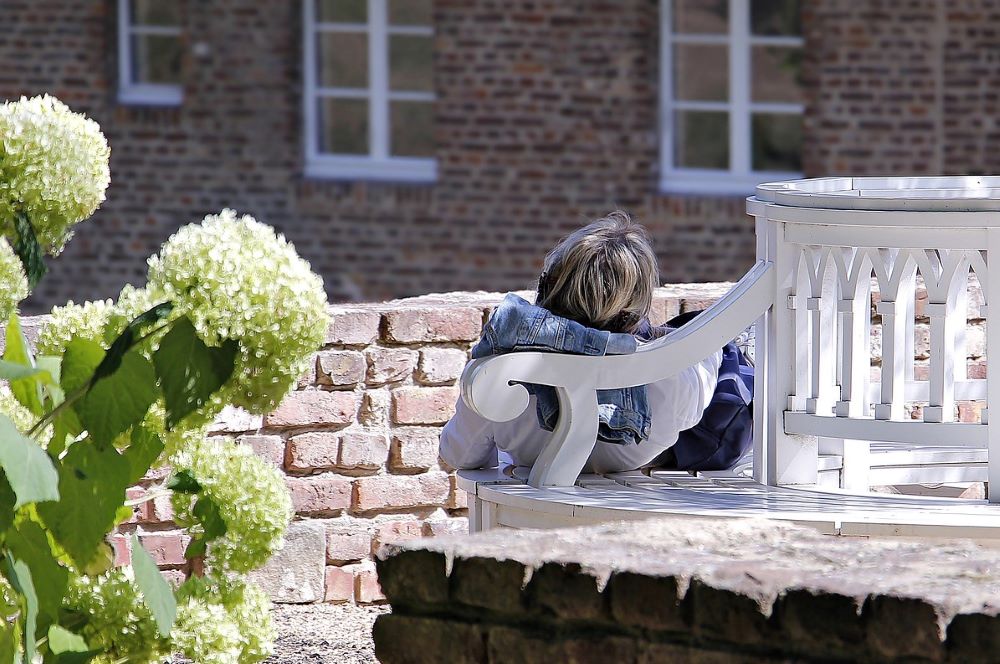
(Pixabay/NoName_13)
Summer break can mean many things: days at the beach, time to curl up with a good book, or a pause amid the daily grind to reconnect with family and friends. With activities including barbecues, service projects, annual retreats and long weekends away, the summer offers a time to shift with the seasons, find a new rhythm, or (at least) put our current pace in perspective.
For some, summer is a season of vacation, while for others, it is a busy time spent facilitating those spaces for others. Regardless of where you find yourself this summer, I think something about the "in between" moment of the season invites our recollection.
Two email signoffs recently caught my attention. The first came as a response to my hope that the sister I was corresponding with was enjoying the change of pace that comes with summer. With kindness and honesty, she wrote of a few projects she needed to work on, after which she hoped "to enjoy this pace of which you speak!"
The second came from an acquaintance who knew I'd recently completed a degree program and hoped I would have a moment to breathe before moving on to my next ministry. "Hopefully, these days are feeling a little freer," she wrote before posing a few questions about a project we're preparing for later in the summer.
Rest — the very act of sabbath-making — is part of our call as people of faith.
After reading each email, I took a deep breath, imagining the freedom we all hoped for in our responses. In between time, after all, is what we make of it, and such freedom is as hard (or as easy) to come by as we make it.
Looking at my summer calendar, I can see this truth playing out in real time. The difficulty of the in between is how we choose to embrace it. That embrace can be as easy as settling into a seaside lounge or as tight as a schedule packed back-to-back with engagements and appointments. In our busy lives, we sometimes see free time not as a time to rest but simply as available or otherwise unoccupied time. Rather than saving time for recharging, we often pack it with other to-dos and miss the regenerative power of being free and changing our pace.
Of course, we all face demands to do more. The reasons are many and varied. For some, time off isn't an option. With mouths to feed and bills to pay, time off is an unaffordable luxury. For others, the idea of taking a prolonged rest might seem to fly in the face of the pressing demands of our world. With all the suffering and injustice in the world, rest appears to be a luxury or disengagement from the things of the world that demand our attention and action. From this point of view, the question arises: How can we take time to just be when there is so much yet to be done?
This question, of course, is a false dichotomy. Rest is neither solely for the rich or privileged, nor is it unavailable to the poor and marginalized. Rest is a universal need and right. We each are called to refill and make space in our own way. Rest is found in our making time and space and our intention in taking it. Actively choosing such rest is an act of resistance in a culture that demands productivity and directly correlates worth with activity and output.
In her 2022 presidential address to the Catholic Theological Society of America, "Remembering the Rest of Life: Toward a Rest-Inflected Theology of Work and Action," Christine Firer Hinze makes a poignant plea for rest as part of our Christian call to action. "In the face of the potential endlessness of all the good work to be done," Firer Hinze asks, "how do we better understand, incorporate and advocate for good rest, not as a grudging accommodation to our finitude, but as an essential human, societal, and spiritual good?"
By framing rest as an essential element of faithful action, Firer Hinze calls all people of goodwill to account for the nature and underlying motivation of our rest, examining our resistance to rest and the grounding power inherent in genuine rest.
Finding rest means facing the pressure to produce and the perception that productivity defines our worth. Solutions to such culturally pre-programmed restlessness are not simple, or one-size-fits-all. Part of learning to rest comes from reevaluating the unhealthy standards we've set for ourselves.
Early in my religious life, I remember meeting with a wisdom figure in my congregation about what advice she would offer a younger member. "Say yes to whatever you are asked to do," she replied wholeheartedly.
I sincerely believe that she was telling me to be open to opportunities and share my gifts with a sense of abundance. Yet her response also delivered a message about working without abandon (or rest). Years later, I realized you can't say yes to everything. You must choose wisely, discerning when 'yes' is a prudent response and when rest might be a better choice for all involved.
In time, I've come to cherish those people in my life who have modeled such regenerative and integrated habits of rest, prayer and service. Their example challenges me to reevaluate my work patterns and find rest amid and apart from my everyday life. As Firer Hinze highlights, such rest is integral to embodying a just love of ourselves, our God, our neighbors and all creation.
Advertisement
Drawing on the work of Tricia Hersey, the founder of The Nap Ministry, we would be right to embrace a space of rest this summer — to grow in community and faith. This is because rest is not a solitary endeavor but a communal effort and investment. Restoring ourselves gives back to the communities we belong to. Rest enables us to rely on others; it makes us vulnerable and lets us lean into the support and care of others.
Rest also humbles us. Our need for rest shows us that we are human. To be faithful to the practice of rest both amid our service and apart from it is an act of faithful charity. We rest so that we can better love, and by resting, we recognize that rest — the very act of sabbath-making — is part of our call as people of faith.
Learning to rest and applying those lessons is countercultural. As I stress about the projects that lie ahead and a new ministry on the horizon, I feel the temptation to fill my time, to be productive in the service of something other than the call to be present to the feelings of the in between. Resting this summer is a call to develop patterns and practices of rest in every season of our lives. That is a call that I, at least, could use practice in answering. (Maybe you could, too.)
As we look toward the months ahead and the mountains of things that could or should be done, why not spend some time away with friends, family or God (or all three!)? For in that restful space, we may be able to listen more deeply to God's call to service, more able and willing to respond prudently, and find that rest is exactly what is needed to live the fullness of life God intends for us.






